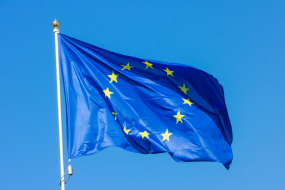Bitkom on the anniversary of the Schrems II ruling
- Berg: "It is high time to break the international data blockade"
Berlin, 15 July 2021 - One year ago, on 16 July 2020, the European Court of Justice (ECJ) declared the so-called Privacy Shield, which had previously regulated data exchange between the EU and the US, invalid. Since the Schrems II ruling, data exchange with non-EU countries on the basis of so-called standard contractual clauses is still legal, but must be examined in each individual case. On the anniversary of Schrems II, Bitkom President Achim Berg explains:
"The anniversary of the ruling against the Privacy Shield, marks one year without one of the most important foundations of economic cooperation between companies and organisations in the EU and the USA. While there have been talks at the political level, not much progress has been achieved so far. Yet the prevention of data transfers is at least as serious for German and European companies as the blocking of physical flows of goods. Data transfers are an essential part of the entire economy and scientific research. Data cannot simply be stored exclusively in one's own country or in the European legal area, as is often suggested. Data exchange across national borders must take place, for example, in pharmaceutical research between locations in Asia, Europe and the USA, as well as in global 24/7 support and protection against hacker attacks for safety-critical applications and infrastructures. Many families in Germany have also experienced the concrete consequences of the Schrems II ruling and the subsequent legal vacuum in a very tangible way when, during the Corona lockdown, tried and tested highly secure video conferencing systems could not be used at many schools.
One year after the Schrems II ruling, it is high time to break the international data blockade. Currently, companies are on their own and have to check data protection for each individual case themselves. This is neither practicable nor feasible in the absence of clear guidelines and a robust legal framework. Policy makers must rise to the challenge and create an appropriate framework as soon as possible. We need a political solution for international data transfers. This urgently requires an even stronger commitment from the EU and the US, which the next federal government in Germany must also work towards decisively. The current situation is massively damaging the German economy."









